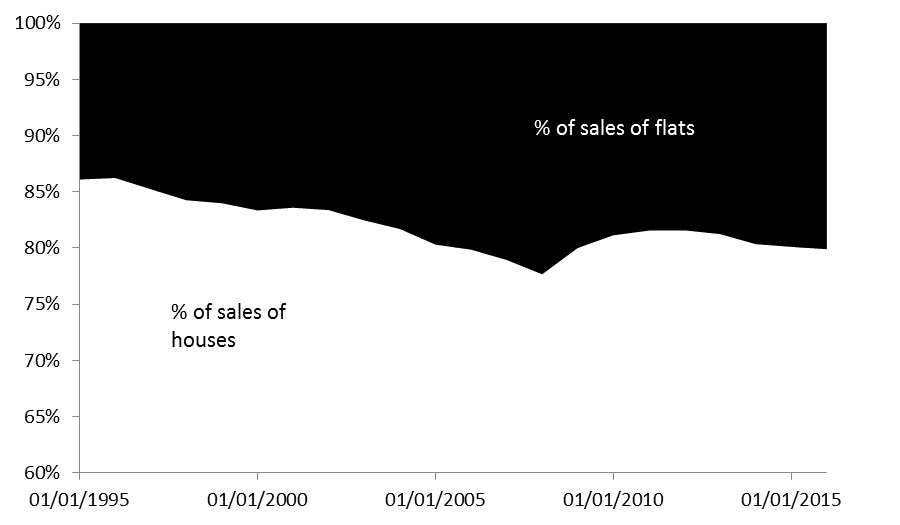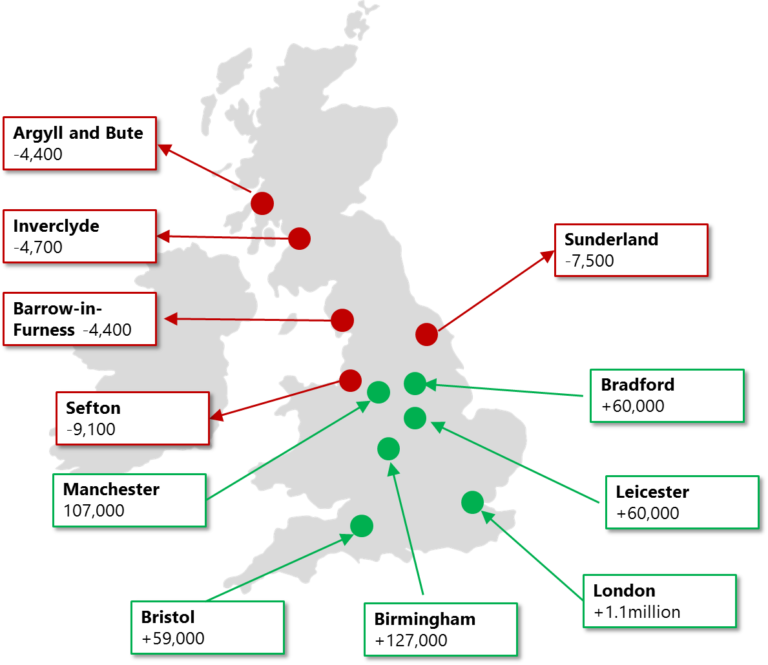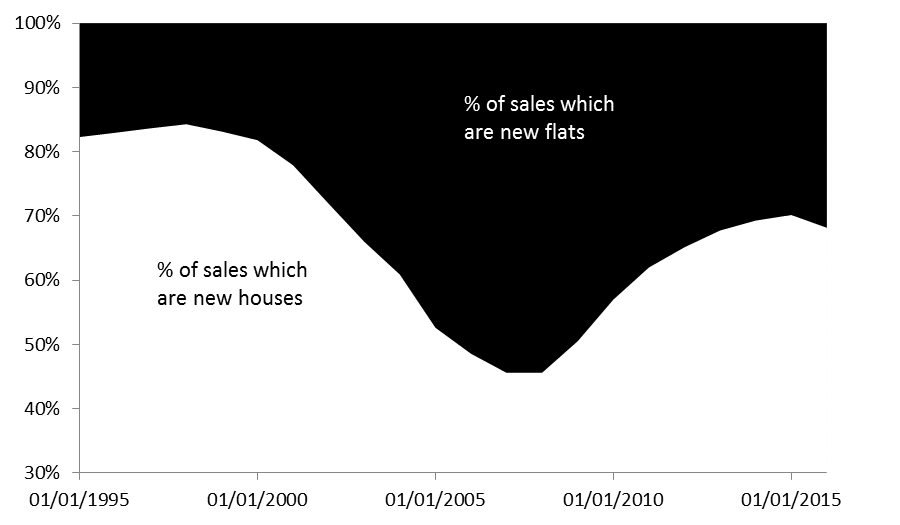
How conveyancing becomes more important in
an ever urbanised country
Conveyancing services have increasingly come under pressure by low-cost, high-volume “factories”, increasing their market shares. Our research shows that this is less suited to a market that has to deal with evermore complex ownership issues.
The below research and analysis shows that buying is becoming increasingly, legally complicated and that property buyers are likely to become increasingly dissatisfied with their legal advice.
Why is buying a property becoming more complicated?
Over the past 20 years flats have generally become a larger share of the properties sold in the UK. As the above graph showed, that even though this share peaked in 2005 at around 25% of total property sales the number of sales per year has remained high at around 20% - twice of what they were in 1995.
The percentage of properties sold in the UK which are houses compared to flats

The graph shows the increasing percentage of properties sold over the past 20 years
In a large part, this can be explained by the tendency of people to now move to cities, away from less densely populated rural areas.
The below graphic shows the top five gainers and losers of population across the UK. It shows that the gainers all tend to be metropolitan areas, compared to the loses that are counties.

In addition, it shows how relatively small levels of migration from multiple rural area are dramatically increasing the population in cities.
The consequence of this is the encouraging of many individuals to live on the same piece of land. The below graph shows the share of new properties sold, between houses and flats. The peak, which was again in 2005 was over 50% of flats and although this share has come down, it is still well over 30% - again twice the share when compared to 1995
The percentage of properties sold in the UK which are houses compared to flats
Flat ownership means that single pieces of land and communal spaces are owned by multiple parties, making the legal obligations and rights more complicated than with single house, where one party may own both the entire structure and the underlying land.
How does this effect the buyers?
Our research has found that people who have bought freehold houses tend to be split equally between those who are satisfied and dissatisfied with their legal advice during the purchase. However, buyers of leasehold flats tend to have much higher levels of dissatisfaction compared to satisfaction.
The percentage of people surveyed who thought they had enough (white) or not enough (black) legal advice following their purchase
As the number of flats in the UK increases, this level of dissatisfaction with conveyancing is also expected to increase.
“Many flat owners and leaseholders are sitting on a ticking-time bomb with leases which will have left them open to huge legal risks and costs and which were not propertly explained to them”, says x estate agent.
This all implies that the low-cost, low-detail conveyancing services and much less likely to be appropriate in the increasingly urbanised country. And if anything, the investment in conveyancing from buyers will have to increase.
About our methodology and research
JuxtaBlock is a market place which helps customers to find new and improved property management services. Our independent research has allowed us to generate the above article.
You can see more on how we work with managing agents on our Partner Page
Get in touch for more information



